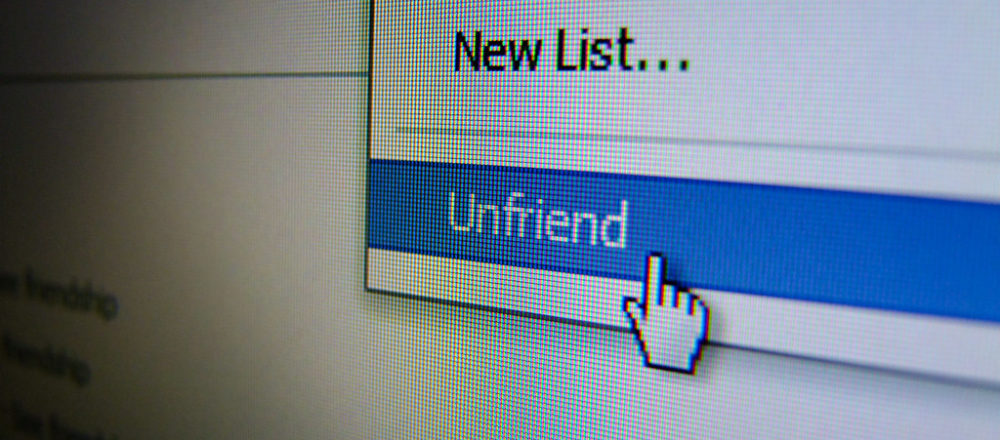After last September’s landmark ruling by the Indian Supreme Court to decriminalise same-sex intimacy, a national debate erupted in Singapore over Section 377A of the Penal Code, a similar colonial-era law that imposed imprisonment terms of up to two years for male homosexual relations. Gay rights activists started a petition calling on the Singapore Government to repeal the law and a counterpetition was quickly circulated to oppose such a move. Frustrated with how the lesbian, gay, bisexual, transgender and queer (LGBTQ) community is treated in Singapore, some individuals started posting on their social media that they can no longer remain friends with people who opposed the repeal of Section 377A.
The breakdown of friendships over issues of politics has become an increasingly common phenomenon, in part because people are more open about their political opinions with the rise of social media. Yet, this has also contributed to a troubling polarisation across many societies as individuals segregate themselves along ideological lines and denigrate those who disagree with them as irrational or immoral. Clicking the “unfriend” button on Facebook might be easy, but the question of how we should approach those whose political beliefs conflict with our own deserves greater reflection.
To unfriend or not to unfriend
As a matter of pragmatism, it seems counterproductive to cut off ties with those who disagree with us; after all, they are the ones whom we need to convince to engender social change. In some cases, their support is also crucial to effecting legal and policy change as in the case of Australia’s postal vote on marriage equality or the Singapore Government’s repeated declaration that it would repeal Section 377A only when the majority of Singaporeans support such a move.
Yet, changing other people’s minds often feels pointless or impossible in today’s intensely polarised political climate. Furthermore, remaining friends with and having to engage such conflicting views may also be detrimental to one’s emotional and mental wellbeing, especially if they are queer and are forced to justify or defend their identities and lived experiences. Most of the people who declared that they could not remain friends with those who opposed the repeal of Section 377A also did so for two other reasons.
The first was strategic: the declaration served as an ultimatum to signal the importance and urgency of the issue, which ultimately is aimed at convincing others to support the repeal. However, as appealing as it might seem, such an ultimatum is more likely to lead to individuals digging their heels in rather than changing their minds.
The second was principled and operates on two levels. On one hand, if you are queer, remaining friends with someone who opposes the decriminalisation of same-sex intimacy or marriage equality might turn you into that token gay friend that they use to defend themselves against accusations of homophobia and bigotry. On the other hand, to remain friends with someone who supports the marginalisation of LGBTQ people may suggest that one is condoning such views. Just as one would not tolerate being friends with someone who espouses white supremacist or misogynist beliefs, one should not tolerate being friends with someone who believes that queer people are lesser than the cisgender-heterosexual majority.
#NotAllHomophobes
The problem with this analogy however is that while there are perhaps no racists or misogynists who hold their beliefs out of concern for the “other” be they racial minorities or women, there are some – especially from younger generations – who oppose decriminalisation or marriage equality out of good faith that it is in the best interests of LGBTQ people. Sometimes, this good faith is simply misplaced because of misinformation or poor scientific literacy about public health issues, especially HIV/AIDS and mental health. Often, they do so out of sincere concern for the spiritual wellbeing of LGBTQ persons, whom they believe would otherwise be cursed to eternal damnation. There are thus arguably two different types of homophobia, one driven by heterosexist disgust and the other motivated by well-meaning but misplaced concern.
To conflate both groups of individuals as hateful and bigoted may be a missed opportunity to nudge the latter group towards meaningful allyship with the LGBTQ community by harnessing their sincere concern for the wellbeing of queer people. Of course, the popular response would be to dismiss such individuals anyway for being well-intentioned but misinformed and repudiate them for the harm against LGBTQ people that they nevertheless perpetuate; as the cliché goes, the road to hell is paved with good intentions. Empirical studies have repeatedly demonstrated how the criminalisation of same-sex intimacy and the unequal treatment of LGBTQ people result not only in poorer health outcomes but also their exclusion from their families and communities.
Yet, this is unlikely to persuade the well-meaning homophobe, who would probably respond by claiming the greater importance of one’s salvation after death; one’s suffering in the earthly realm is perhaps insignificant in contrast. How then are we to engage with such individuals and is it even possible to resolve this seemingly intractable conflict between the theological and the tangible?
Queerness as moral disability
One possible way out of this conundrum is by reframing the issue. Currently, LGBTQ issues are conceived as a culture war between the liberal left and the religious right. This presumes that there are two equally valid ideologies in competition with each other. However, instead of engaging in this battle of beliefs, the better question may be “what should we do in the best interests of LGBTQ people in our midst?”
To answer this question, it is apposite to take reference from the experience of the disability movement. For far too long, issues regarding the needs and wellbeing of disabled people have been decided for them by the able-bodied majority, be they medical professionals or politicians. In response, disability activists rallied around the mantra “nothing about us without us” to campaign for self-representation and full participation in the formulation and implementation of laws and policies that affect them. Informed by the notion that it is the disabled who know what is best for themselves, this mantra guided the drafting of the UN Convention of the Rights of Persons with Disabilities, the first human rights treaty to involve non-state actors from the disability movement in the negotiation process.
The historic exclusion of disabled people from decisions about them resulted from the ableist assumption that disabled people lacked the mental capacity to know what is best for themselves. In a similar vein, LGBTQ people are often presumed to lack the moral capacity to know what is best for themselves. It is from this problematic belief that the apparent clash between the theological and the tangible arises; well-meaning homophobes operate under the assumption that they know better than LGBTQ people themselves what is in the latter’s best interests. However, if well-meaning homophobes are sincerely concerned about the wellbeing of the LGBTQ community, then they should take heed from the same mantra of “nothing about us without us”. To do otherwise by prioritising their own belief about the spiritual salvation of LGBTQ people over the demands of LGBTQ people themselves suggests that their sincerity and good faith may perhaps not be as pure or well-intentioned as they imagined themselves to be.
Furthermore, pragmatically, it is doubtful how their opposition to the decriminalisation of same-sex intimacy or the legalisation of marriage equality can or will result in the spiritual salvation of queer people. Instead, more than anything, such a political stance seems to merely assuage their own sense of moral righteousness. After all, a discriminatory legal environment does little to prevent LGBTQ people from living their lives; it merely makes it more difficult and painful to do so.
Of rights and relationships
Returning to the initial question of friendship, is it then possible for one to remain friends with a homophobe? I think so. The crux lies in identifying what motivates their opposition to the recognition of the rights of LGBTQ people, be it a raw, irrational disgust towards gender and sexual diversity, or well-meaning but misconceived concern. This is not to say that an individual cannot believe in the immorality of same-sex relations; rather, there is a difference between one’s personal beliefs and the policy decisions that one should support if one indeed cares about the other given the precondition of mutual caring in a friendship.
While it may feel impossible to change others’ minds about LGBTQ issues given how fraught and polarised the discourse has become in Singapore and indeed many other societies, the ability to change each other’s minds is a hallmark of a liberal democracy. What I have outlined in this article is one possible way forward in doing so. Rather than simply cut off ties with those with whom we disagree with, we must continue to find ways to reach across the ideological aisle to engage with and hopefully convince the other. It is only by doing so that we can gain more allies to the LGBTQ movement, especially when they already evince a sincere interest and concern for us.




